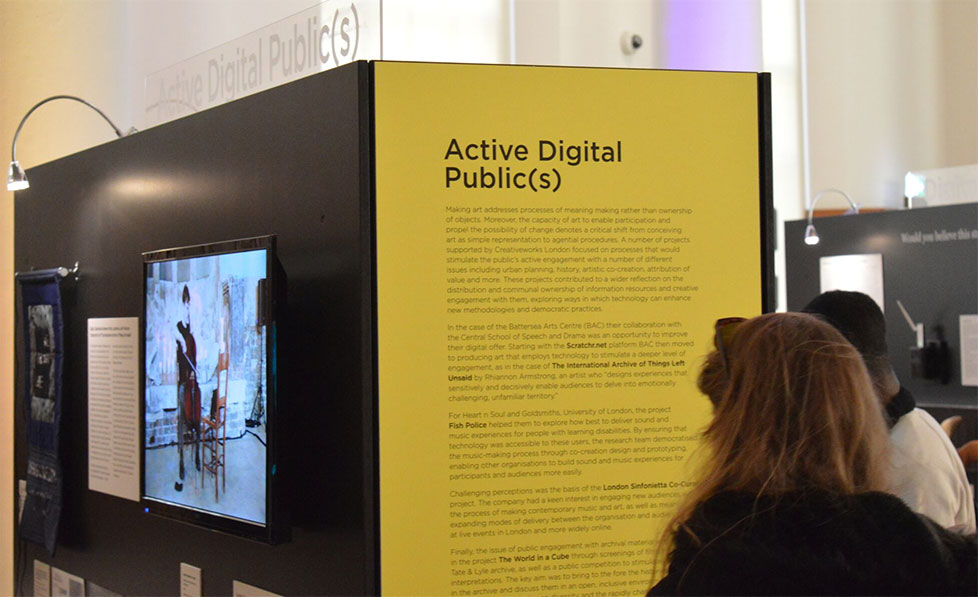— featured article —
London’s Digital Ecologies of Collaboration10:00 – 19:00, Friday 29th April 2016 No need to book just drop in! Encompassing five areas of critical digital enquiry this installation documents 20 projects supported by Creativeworks London between 2012 and 2016, funded via the Creative Voucher and Creative Entrepreneur-in-Residence schemes. Digital transnationalism – In light of mass migration, and the global promotion of digital platforms, cultural interconnectivity extends across geographical boundaries, as cultural / territorial boundaries progressively lose their static terms of reference. This critical area of research is explored with its social and political implications of global co-operation and actions of individuals beyond the nation-state. Featuring: – The World in a Cube (New Media Networks & Birkbeck, University of London) Digital heritage commons – The creation of Digital Heritage Commons responds to the need for respect and mutual co-operation between the diverse populations of large metropolitan areas. It is a sign of common understanding across cultural perspectives. The question is how, why and on what grounds can Digital Heritage Commons transform the way people think about themselves, their communities, their environment, their pasts, their aspirations and their futures? What role might history and the archive play? Featuring: – Bringing the past into the present: creatively mobilising historical research through Augmented Reality technology (Prossimo Ventures & University of Roehampton) Democratisation and digital space – This area explores the impact of new power relations manifested by dynamic networks in the capillaries of everyday life and asks what role is played by digital technologies in the construction of our subjectivities and supporting agency in divided societies. Featuring: – FishPolice (Heart n Soul & Goldsmiths, University of London) Active digital public(s) – Art production addresses the process of meaning making and digital technologies have enhanced its capacity to enable participation, shifting its focus from representation to co-production. This area showcases the distribution and communal ownership of information resources, as well as stimulating methodological developments that acknowledge artistic co-creation and attribution of value. Featuring: – The World in a Cube (New Media Networks & Birkbeck, University of London) Digital tools of innovation – Computational Capital points to a re-thinking of commodities as integrated products made of chunks of subjective time re-bundled through computational processes. Fundamentally, capital is still underpinned by human time (labor, attention, cognition, neuro-power). Selected projects showcase the potential for digital innovations to overturn old systems of production and consumption, redefining the attribution of value and distribution of resources and our relationship to each other and the natural world. Featuring: – BeatWoven (BeatWoven & Queen Mary University of London) Credits:
|
— more news —
|
Creativeworks London is one of four Knowledge Exchange Hubs for the Creative Economy funded by the Arts and Humanities Research Council (AHRC) to develop strategic partnerships with creative businesses and cultural organisations, to strengthen and diversify their collaborative research activities and increase the number of arts and humanities researchers actively engaged in research-based knowledge exchange.

